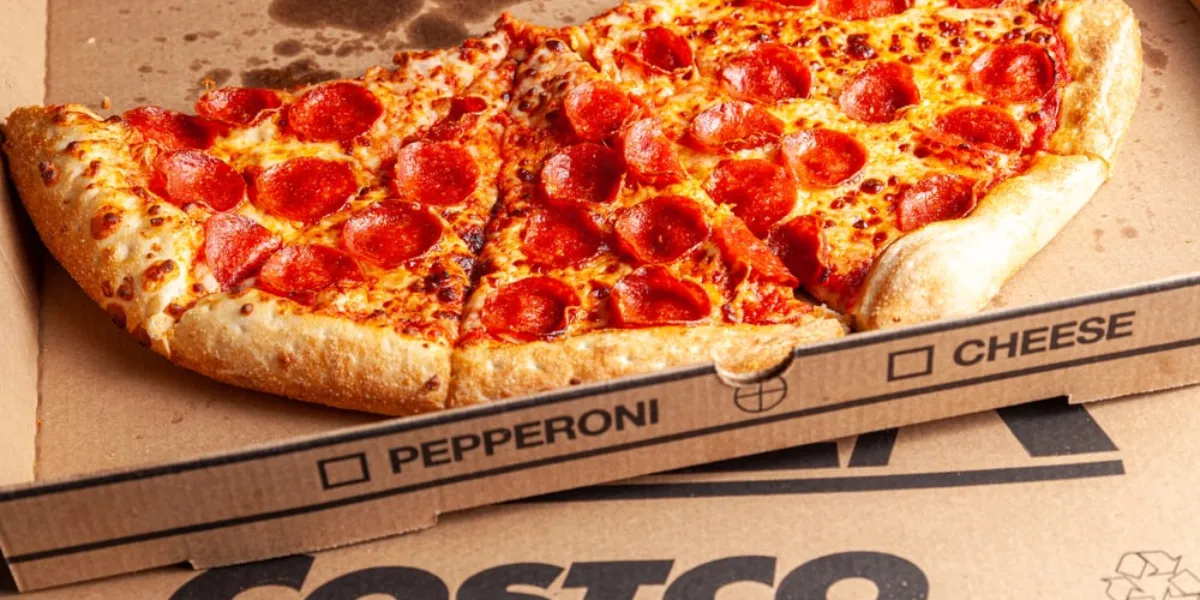Intermittent fasting (IF), especially the 16/8 model, recently skyrocketed in popularity as it offers not only weight loss but a collection of super wellness benefits that are unexpected. This article delves into the essential question: On average, how many six-eight intermittent fasting hours does it take to get the job done? Through both scientific insights and personal experiences, this comprehensive tutorial covers the information that is required and will also be easy to apply for individuals considering this lifestyle change.
Table of Contents
ToggleOverview of a 16/8 Intermittent fasting
The intermittent fasting (16/8) method includes daily eating habits of fasting for 16 hours and restricting feeding to an 8-hour window. This method receives high praise not only for its simplicity but also for the outcome of its case study on weight loss, metabolic health, and prolonging lives. However, a newcomer’s primary concern is often, “How long does 16/8 intermittent fasting take” to bring results?
The Initial 10%: This is what is known as the timeline.
Knowing how far away from the target is and the period of the 16/8 intermittent fasting is vital for the first stage of this journey. Though results from individuals fluctuate much depending on physical characteristics like initial weight and dietary habits, some facts that have come from scientific research and testimonies of others are visible.
Path to Improved Health
Improved health is a multi-faceted journey in which you make certain lifestyle choices that help you maintain a high quality of life. Implementing intermittent fasting such as a 16/8 technique can be a great measure on the path to the weight loss goal. Through fasting adaptation of an organized eating pattern which inserts break times, the individuals can potentially get a lot of health benefits.
The intermittent fasting has been connected with the benefits of metabolic health that include as follows; better insulin sensitivity, lower inflammation, and reduced risk factors of chronic diseases like type 2 diabetes and cardiovascular issues among others. Also, intermittent fasting is facilitates weight loss plans by burning fat and saving intact lean muscle mass.
Intermittent fasting beyond its physical results has also proven to be beneficial in memory boost, more energy levels, and enhanced longevity. Intermittent fasting is one part of the all-inclusive health approach that offers you the prospect of leading a healthful, joyful life.
Carefully presses: Although eating on the earlier side may sound like a Strange suggestion, it could be good.
The method of scheduling your eating window as early as the waking hours is one of the fine strategies that you need to master to get the most from your 16/8 method of fasting. Through this timing dinner will support the natural circadian rhythms of the body; thus, it may boost the metabolism, and also better digestion and nutrient absorption.
Studies show that when you consume calories nearly all in a period from 9 am to 5 pm, this leads to advanced weight loss, better sensitivity to insulin, and even longer sleep time than later in the day eating.
Through this mode of fasting, eating habits are optimized in intermittent fasting periods when the body functions very well, hence synchronizing mainstream eating activity with the internal clock. This may be used to reinforce the beneficial effects of intermittent fasting on improving the health of people and their general well-being. Besides losing weight and speeding up the process when you embrace the idea of an earlier eating period, this modality could also create a remarkable effect on your overall experience while applying that routine of 16/8 intermittent fasting.

It’ll Take a Few Weeks to See Intermittent Fasting Results on the Scale
Embarking on the journey of intermittent fasting, particularly with the 16/8 method, requires patience and perseverance, especially when it comes to seeing tangible results on the scale. While the initial weeks may bring about changes in energy levels, appetite control, and overall well-being, significant weight changes may take a bit longer to manifest.
This delay is often due to the body’s initial adjustment period as it adapts to the new eating pattern and shifts from using glucose to burning fat for fuel. However, by adhering to the fasting schedule consistently and incorporating healthy dietary choices and physical activity, you can expect to see steady progress over time.
Remember, sustainable weight loss is a gradual process, and while the scale may not reflect immediate changes, the holistic benefits of intermittent fasting extend far beyond mere numbers, contributing to improved overall health and vitality. Stay committed, stay focused, and trust in the transformative power of the journey you’ve embarked upon.
How Long Does It Take for 16/8 Intermittent Fasting to Work?
Week 1-2: Adjustment Period
In the first two weeks is usual that we adjust. This transition takes place when your body gets accustomed to running on fats from saved-up ones rather than glucose for energy. As we get used to longer time intervals between meals, such as fasting, we might experience discomfort in the form of hunger pangs, or irritability and tiredness. Nevertheless, the most frequent symptom reported by the subjects during the first week is a tiredness declination and a low in the sugar craving group.
Week 3-4: Visible Changes
In the third week of the training, the majority of the group begin to observe apparent changes. Weight loss particularly could be noticeable if 16/8 intermittent fasting is continued with a healthy way of life, including nutritious food intake and regular physical activity. Those who lose weight put on the side are also subject to having their blood sugar levels stabilized, as well as increased mental clarity.
Month 2 and Beyond: Long-term Benefits
The benefits of the month of sticking to 16/8 intermittent fasting are such that they progressively build up with time. Weight loss is unlikely to be overly rapid as it is generally safe and many report enhanced performance in terms of fitness, improved sleep quality, and further improvements in the health markers (namely cholesterol and blood pressure levels).
Factors Influencing the Effectiveness of 16/8 Intermittent Fasting
While the 16/8 method is straightforward, several factors can influence how quickly and effectively you’ll see results: While the 16/8 method is straightforward, several factors can influence how quickly and effectively you’ll see results:
- Dietary Choices: Neither timing makes matter but the quality does. One observes such things as wholesome foods, lean proteins, healthy fats, and vegetables can be added and become more effective.
- Consistency: One concerns the right way of following the schedule over time and seeing positive lasting results.
- Activity Level: Adding some sort of exercise to losing weight along with accelerating the process and increasing lean muscle during fasting.
- Individual Health: Before knowing it, this health condition and metabolic variations may be the cause of not experiencing the joyful effects of intermittent fasting.
Maximizing the Benefits of 16/8 Intermittent Fasting
To enhance the effectiveness of the 16/8 method and ensure you’re not just waiting for results but actively contributing to their realization, consider the following tips: To enhance the effectiveness of the 16/8 method and ensure you’re not just waiting for results but actively contributing to their realization, consider the following tips:
- Hydrate: Hydrating yourself adequately can help a lot during periods of fasting when hunger pangs might be an issue.
- Smart Eating: Select food options that can help turn your eating cycle into a nutrient-filled period which will aid in the achievement of your goals and main health status.
- Mindful Eating: Be mindful of food craving/fullness signs to avoid overeating which you can achieve during your meal time.
- Exercise: Work out regularly, however, do it, according to your fatigue level and slow down or stop, as it gets too hard.
- Rest: Be sure to get enough sleep as bad sleeplessness can be attributed as a reason for unsuccessful weight loss and the negative effects of intermittent fasting upon your health.
Real-Life Success Stories
Engaging with the intermittent fasting community can provide motivation and insights from those who’ve experienced the transformative effects of the 16/8 method. Many share that beyond the initial adjustment period, the lifestyle becomes sustainable and highly rewarding.

Conclusion: A Journey of Transformation
To end, the solution to this question is that 16/8 intermittent fasting has to be taken as a journey where individuality is a major factor, rather than a one-approach-for-all timing. On the first hand, the process can be already observable because of things like energy gain and a reduction in appetite, and on the other, after one month of changing, you will notice dramatic results like weight loss and health improvements. Well, periodical sessions and application could be more rewarding than painstaking practice.
Adopting the 16/8 fasting pattern along with consuming a healthy diet and abiding by a mindful, conscious lifestyle empowers people to get on the right track toward not only a fitter physique but also an improved quality of life. Bear in mind, it is a spiritual travel package, tailored as personally as it could be, and hence, patience cum perseverance are sure to pay in the terrestrial of intermittent fasting.
Frequently Asked Questions (FAQs)
People usually have some doubts or questions that they would like to find an answer about from this fasting method as well as its impact and results. Here are some common inquiries along with informative responses: Here are some common inquiries along with informative responses:
How quickly will I see results with 16/8 intermittent fasting?
The outcomes show great differences when it comes to elements like initial weight, diet intentions, and movement exercise level. But as more than just a few people relate to the fast changes they have experienced in the first four to six months, powerful effects worked on appetite, increased energy level, and mental clarity. For instance, substantial weight drop and other health advantages could very much emerge in the next few weeks or months. And this will be achievable through consistent following of the 16/8 fasting regime.
How much weight can you lose in a month with intermittent fasting 16/8?
When it comes to the weight loss outcomes with intermittent fasting, there will be substantial differences across the spectrum of human beings. But, in the context of strict discipline towards the 16/8 fasting plan with the addition of a balanced healthy diet and physical activity, the potential for efficient weight loss with this approach is accessible. For as individuals will try to lose 1-2 pounds per week on average, a direct result might be 4-8 pounds weight loss per month.
How do you know if 16/8 fasting is working?
The evidence of effectiveness of 16/8 fasting is the augmentation of energy level, vitality, concentration, and appetite control, as well as continual progress toward the weight-loss goals. Furthermore, the process of monitoring body composition changes, for example waistline reduction or growing muscle, like the effectiveness of one’s fasting regimen. Consequently, the changes need to be monitored.
How do I maximize my 16/8 intermittent fasting?
The main key to obtaining the most out of a healthy 16/8 intermittent fasting plan is to pay attention to what you eat during the eating window: try to base your diet on nutrient-dense foods, stay hydrated, favor whole foods, and keep a consistent fasting schedule. Besides, it can be very advantageous to add in regular exercise, especially after stress management plus to have adequate sleep. This can improve intermittent fasting.
What happens after 1 month of intermittent fasting?
A lot of people at the end of four weeks of consuming healthy meals usually show visible results in weight reduction, health markers, and general well-being. For others, there can be new and increased vigor, pasty skin, better digestive health, and fewer sleep problems. The prolonged fasting practice is the continuation of the same that is more effective in providing health benefits and is ideal for weight management.
Does fasting make skin glow?
The fasting regime can do wonders for the appearance of skin by relieving inflammation contributing to the detoxification process and supporting normal cell regeneration. Nevertheless, the metaphor may not apply to everyone; thus, eating a balanced, healthy diet, staying well hydrated, and applying good skin care along with this routine are also suggested to have the skin radiant.
How does fasting change your face?
While intermittent fasting may result in some changes in facial features like reduced puffiness and water retention, there might be a possibility that after some time, it will also easily lead to a decrease in facial fat. A few citizens may perceive a more obvious face bone structure of their jaws or cheeks as they lose weight and reduce body fat.
Does fasting make your face slimmer?
Fasting plays a role in losing and maintaining body weight, as well as excess fat reduction in the face to create a more slender countenance. The effect of that rapid weight loss on health is therefore a single part of the overall puzzle, while a balanced diet and physical activity are another.
Does fasting clear your face?
Fasting, especially intermittent fasting, could assist in the maintenance of clearer skin, by minimizing inflammation and the capacity to excrete accumulated toxins. While some people report that fasting helps acne and other skin conditions such as eczema, others experience aggravation of their skin condition. On the other hand, using skincare products that are designed for your certain skin type, staying hydrated, and consuming a healthy diet are also important for having clear and good skin.














